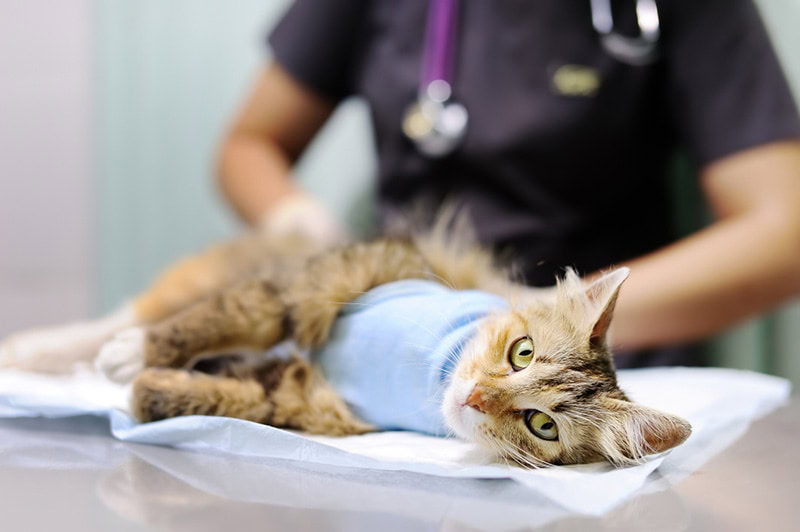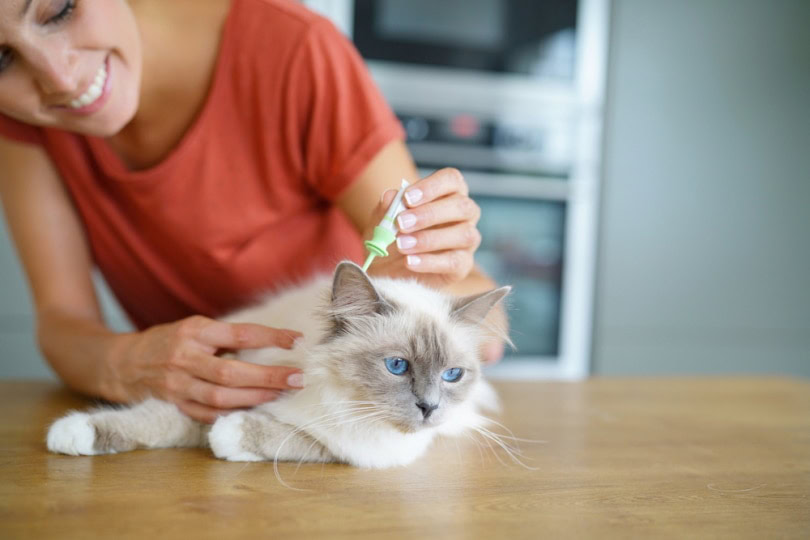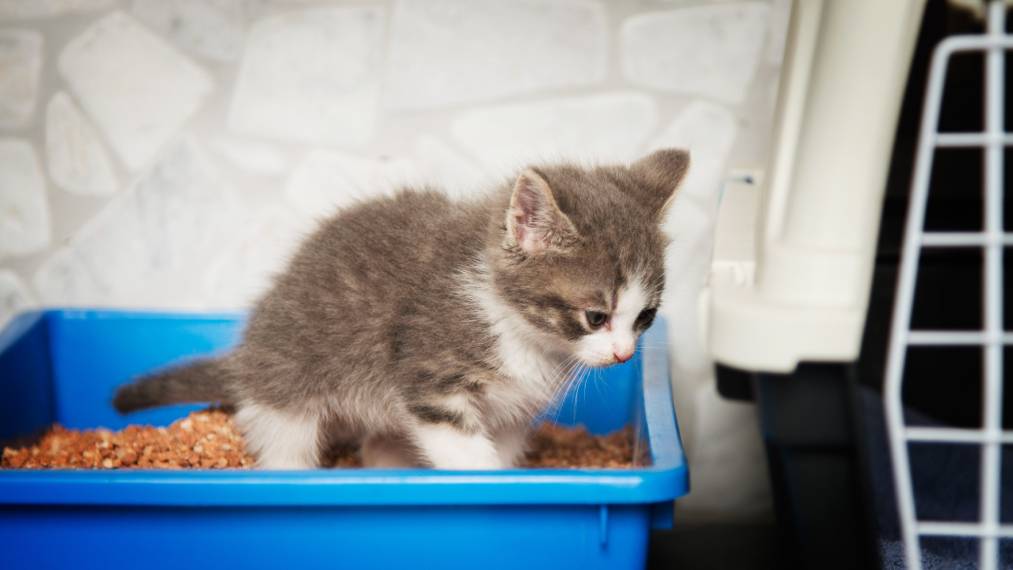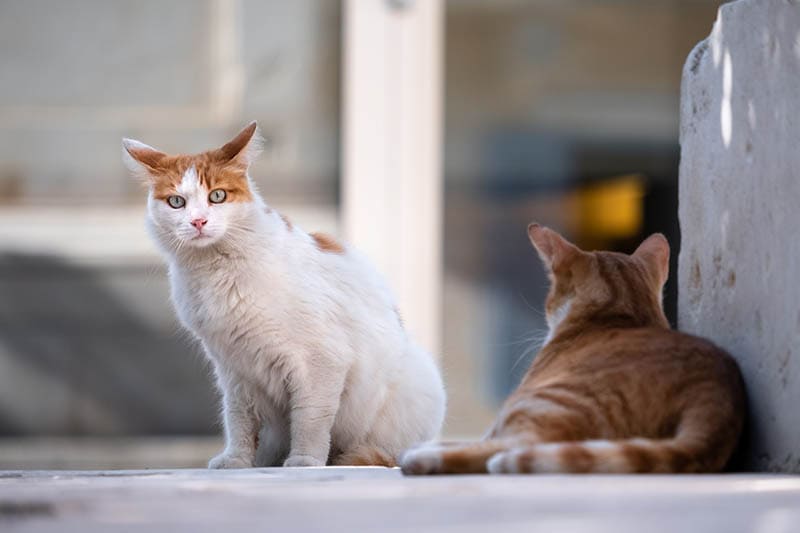VET APPROVED

The information is current and up-to-date in accordance with the latest veterinarian research.
Learn more »Click to Skip Ahead
Abscesses are a relatively common ailment in cats that can have many different causes. These unpleasant pockets of pus can occur all over and within the body and can vary in size. If you notice your cat has an abscess, it’s time to see the veterinarian.
The cost of veterinary care for treating an abscess can vary depending on its location, size, severity, systemic involvement, and many other factors. In this article, we’ll go over the current cost estimates associated with treating a cat’s abscess.

The Importance of Veterinary Care
Whenever your cat starts exhibiting any signs of illness, it is important to take them in for an exam. Abscesses have many potential root causes, but the most common reasons are typically a bite from another animal or penetration from an inanimate object.
Abscesses are bacterial infections and must be treated accordingly. Thankfully, most treatment is outpatient, though it depends on the location and the severity of the infection. Veterinary intervention is critical to ensure the abscess is treated in time and the infection is cleared entirely.
How Much Does Cat Abscess Treatment Cost?
The average cost to treat an abscess on a cat can vary significantly and falls anywhere between $200 and $2,000 in total. If your cat has an abscess, speak to your vet who can provide you with a more accurate estimate based on the clinical exam. Here are some of the factors that may play a role in determining the overall cost:
The Severity of the Abscess
Treatment costs can depend greatly on how severe your cat’s abscess is. You’ll have your exam fee, which is expected but then you must consider whether your cat needs any additional diagnostic testing and what the appropriate treatment will be.
Some abscesses may be treatable with medication only, while others may require drainage or even surgical management. Therefore, the price range for treatment is very wide.
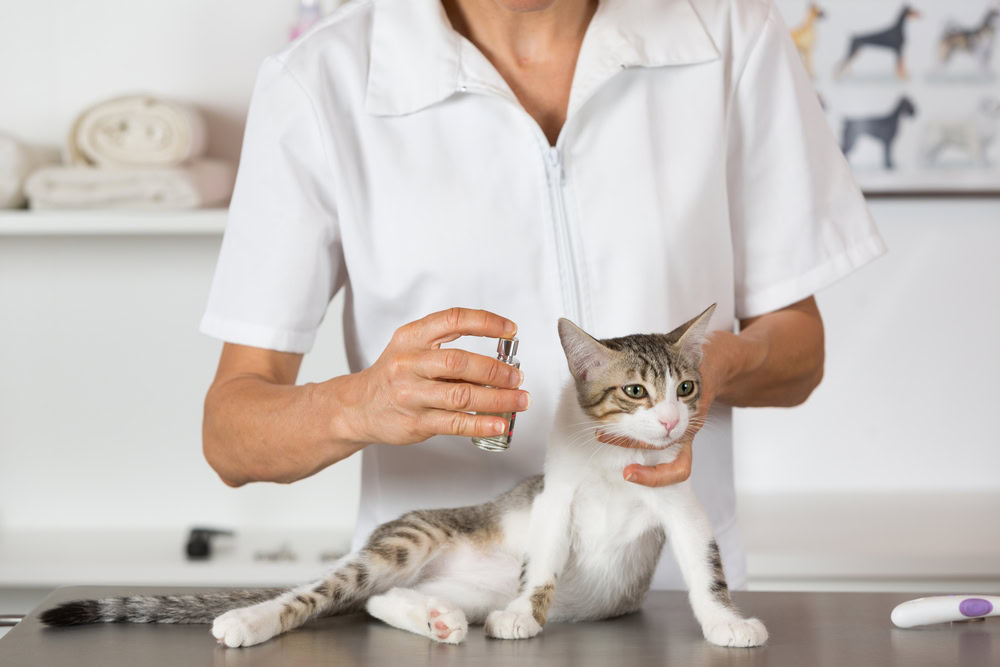
Geographical Location
Your location can play a significant role in how much your veterinary care costs. Not only does the cost of living vary by region but it can also vary between urban and rural settings.
Veterinary Clinic
The type of clinic you visit may also determine your overall costs. Veterinary clinics and referral hospitals that have higher maintenance costs due to more advanced equipment and specialized staff will undoubtedly cost more than a smaller rural clinic with more limited equipment and/or services.

Additional Costs to Anticipate
It’s not just the abscess alone that will be at the forefront of the total cost. The price adds up depending on the different services you receive revolving around the care. Here’s a breakdown of what additional costs you can expect for abscess treatment.
Exam Fees
Veterinary clinics charge a fee for the appointment regardless of whether it is pre-scheduled, a walk-in, or an emergency visit, but the price will vary. If you take your cat to be seen for an abscess during regular working hours, you will pay less than in the case of the appointment outside of normal working hours.
Abscesses typically aren’t an emergent situation unless there are more concerning systemic signs accompanying the condition or in case of abscesses affecting internal organs or large areas of the skin. Some of these signs include lethargy, fever, poor appetite, excessive sleeping, vomiting, diarrhea, open skin wounds, limping, and more.
Laboratory Tests
Your cat may not need any laboratory testing for the treatment of an abscess, but this is always an additional cost to keep in mind. If your cat ends up needing surgery or they are elderly or suffering from another underlying illness, your veterinarian may recommend having bloodwork done before putting your cat under anesthesia. Any testing will be done after discussing it with your vet and seeing what’s best for your kitty.
Diagnostic Imaging
Diagnostic imaging includes things like X-Ray, ultrasound, MRI, and more. A simple abscess likely won’t require any imaging, but that’s not a guarantee. Sometimes imaging will be necessary to properly diagnose and treat your cat in case of penetrating foreign bodies or more complex abscess cases.
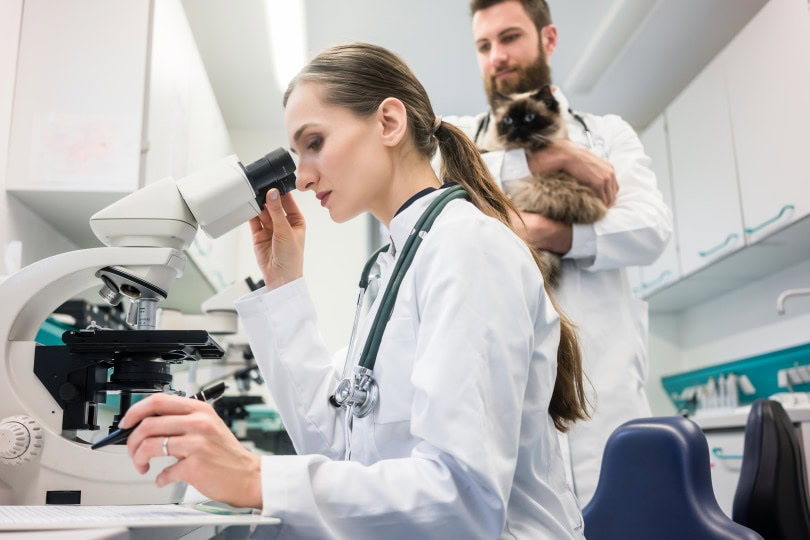
Drainage
Certain abscesses that can’t be treated with medication alone may require drainage. This is done by lancing the abscess and allowing the build-up to drain. It is then flushed out with a saline solution and cleaned thoroughly. Rarely, an actual drain is required to stay in the wound for a few days in case of more extensive and deep abscesses.
Medication
Abscesses are typically caused by a bacterial infection. Your cat will most likely be prescribed antibiotics to help clear up the infection.
Surgery
In more extreme cases, an abscess may require surgical management. This is undoubtedly the most expensive route, but if the veterinarian is recommending surgery, it’s because it is a necessity.
Follow-Up Appointment
A follow-up may not be necessary but if your cat has undergone surgical removal or drainage of an abscess, your vet may recommend they come back for a follow-up exam to see how they are healing.

Price Range for Veterinary Services Related to Abscesses
| Veterinary Procedure | Price Range |
| Exam | $50 – $100 |
| Laboratory Tests | $80 – $200 |
| Medication | $40 – $150 |
| Abscess Drainage (Lancing) | $100 – $800 |
| Surgery | $300 – $2,000 |
| Follow Up Visit | $50 – $100 |
Please note that these prices are just approximations and may differ greatly depending on the extent and severity of the abscess, the cat’s underlying health, and many other factors. Speak to your vet for a more accurate estimate of anticipated costs.
Signs of an Abscess
Abscesses most commonly occur on the head, neck, limbs, back, and base of the tail but can occur on any part of the body or inside of the body. If left untreated, abscesses can lead to the development of more serious, potentially life-threatening conditions. The most common signs of an abscess, depending on the affected body part, may include:
- Pain
- Limping
- Licking of the affected area
- Fever (especially if located inside the body)
- Red, swollen, or inflamed area
- Excessive itching or scratching
- Pus or blood on the skin
- Foul-smelling discharge
- Loss of hair at the site of the abscess
- Swelling on the face or affected area
- Lack of appetite
- Lethargy
Does Pet Insurance Cover Abscesses?
Most pet insurance should cover the cost of a cat’s abscess if it is not a dental condition. Abscesses typically fall under accidental illness or injury coverage, which is the most common coverage for pet health insurance plans.
Dental abscesses may be a different story. If the abscess is related to a dental condition and you lack dental coverage within your plan, you may have to pay out of pocket.
When you are choosing your pet insurance plan, be sure to pick the type of coverage that suits you best. Dental coverage may be an add-on in some cases but may be inclusive in others.

What to Do for Your Cat if They Have an Abscess
If you believe your cat has an abscess, it’s time to contact your veterinarian and set up an appointment. Most abscesses are the result of a bacterial infection and must be treated as soon as possible to prevent the infection from spreading further.
Most abscesses will heal within 2 weeks once treatment has been administered. You may have some at-home cleaning and care to do during the healing process. Your veterinarian will provide specific instructions that are customized to your cat’s needs.

Conclusion
The cost of treating a cat’s abscess can vary significantly depending on the location and severity of the infection as well as your geographical location. Care may range from antibiotic treatment to surgical management of the abscess and costs can fall between $200 and $2,000 for the entire process, but most cases will respond to medical treatment and outpatient care.
Featured Image Credit: Maria Sbytova, Shutterstock
